
Editor
Celebrated West German director Alexander Kluge presents this drama that strings together vignettes of events taken from everyday newspaper headlines. Germans are shown in their reactions to World War II, minorities, and the elderly. A side plot follows a meeting between former West German Chancellor Helmut Schmidt and East German leader Erich Honecker.

Editor
En un remoto desierto de Australia, viven dos tribus aborígenes, los Worora y los Riratjingus, que se esfuerzan denodadamente por conservar una cultura de cuarenta mil años de antigüedad, con sus costumbres, ritos y leyendas sobre la creación del hombre y la naturaleza. El conflicto surge cuando un consorcio minero se propone extraer uranio dentro de su territorio, en un lugar sagrado para ellos llamado "Donde sueñan las hormigas verdes". Es la rebelión del mundo del espíritu contra una civilización groseramente materialista que lo quiere todo y que no comprende nada.

Editor
The Cold War is peaking again in divided Germany in the early 1980s. How to deal with the upcoming nuclear annihilation shows this Alexander Kluge short.
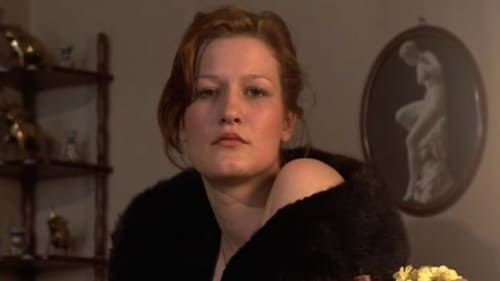
Editor
La emoción y los sentimientos no deben ser confundidos con el sentimentalismo. La emoción es antiquísima y mucho más poderosa que cualquier expresión artística. El filme observa a jóvenes parejas enfrentándose a dificultades mientras intentan trasladar sus experiencias amorosas hacia tomas de decisiones claras. Una película llena de ideas, detalles y asociaciones, escenas de ficción, imágenes documentales, materiales de archivo y música de ópera.

Editor
Reverend Huie Rogers is a preacher at the Bible Way Church of Our Lord Jesus Christ in Brooklyn. He is the topic of this short film, during which launches into an epic call-and-response denunciation of human hubris, greed, corruption and failure. The use of lengthy shots present it less like a sermon and more a performance, and induce an almost trance-like state.

Editor
Fitzcarraldo es un soñador que planea construir un teatro de ópera en Iquitos, en la Amazonía peruana, así que, para financiar su proyecto, se embarca en una aventura épica para recolectar caucho, un producto muy rentable, en una región remota e inexplorada de la selva.

Editor
The documentary follows Gene Scott, famous televangelist involved with constant fights against FCC, who tried to shut down his TV show during the 1970s and '80s, and even argues with his viewers, complaining about their lack of support by not sending enough money to keep going with the show.

Editor
En su búsqueda de material histórico de partida que pudiera confrontar con sus libros, una profesora de historia inicia un viaje por el presente y el pasado. Con el comentario de un narrador sólo parcialmente presente y que se manifiesta en forma de rodilla parlante, se desgrana, en un orden experimental, un collage de múltiples fragmentos, algunos dramatizados y otros procedentes de material de archivo. (FILMAFFINITY)
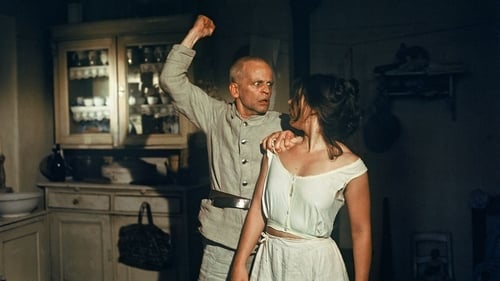
Editor
Después de haber engendrado un hijo ilegítimo con su amante, Marie, el soldado infeliz Franz Woyzeck toma trabajos ocasionales en su pequeño pueblo para proporcionarles dinero extra. Uno de ellos es voluntario para experimentos realizados por un médico local, que pone a Woyzeck en una dieta de guisantes. Esto sirve para llevarlo a la locura, y el descubrimiento de que Marie está involucrada en un romance con el tambor local mayor exacerba la situación. Empujado demasiado lejos, Woyzeck recurre a la violencia.
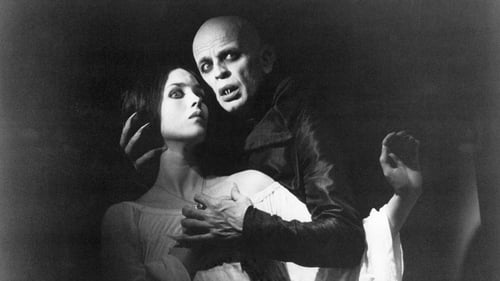
Editor
Adaptación de la mítica novela de Bram Stoker que toma como punto de referencia la insuperable adaptación de Murnau. Jonathan Harker viaja desde Wismar a Transilvania, al castillo del legendario conde Drácula, con el fin de venderle una mansión en su ciudad. Atraído por una fotografía de Lucy, la mujer de Harker, Nosferatu parte inmediatamente hacia Wismar, llevando con él muerte y el horror.
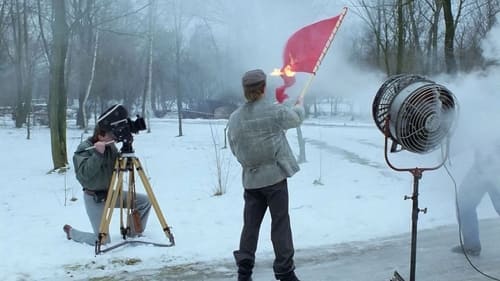
Editor
Germany in Autumn does not have a plot per se; it mixes documentary footage, along with standard movie scenes, to give the audience the mood of Germany during the late 1970s. The movie covers the two month time period during 1977 when a businessman was kidnapped, and later murdered, by the left-wing terrorists known as the RAF-Rote Armee Fraktion (Red Army Fraction). The businessman had been kidnapped in an effort to secure the release of the orginal leaders of the RAF, also known as the Baader-Meinhof gang. When the kidnapping effort and a plane hijacking effort failed, the three most prominent leaders of the RAF, Andreas Baader, Gudrun Ensslin, and Jan-Carl Raspe, all committed suicide in prison. It has become an article of faith within the left-wing community that these three were actually murdered by the state.

Screenplay
Germany in Autumn does not have a plot per se; it mixes documentary footage, along with standard movie scenes, to give the audience the mood of Germany during the late 1970s. The movie covers the two month time period during 1977 when a businessman was kidnapped, and later murdered, by the left-wing terrorists known as the RAF-Rote Armee Fraktion (Red Army Fraction). The businessman had been kidnapped in an effort to secure the release of the orginal leaders of the RAF, also known as the Baader-Meinhof gang. When the kidnapping effort and a plane hijacking effort failed, the three most prominent leaders of the RAF, Andreas Baader, Gudrun Ensslin, and Jan-Carl Raspe, all committed suicide in prison. It has become an article of faith within the left-wing community that these three were actually murdered by the state.

Director
Germany in Autumn does not have a plot per se; it mixes documentary footage, along with standard movie scenes, to give the audience the mood of Germany during the late 1970s. The movie covers the two month time period during 1977 when a businessman was kidnapped, and later murdered, by the left-wing terrorists known as the RAF-Rote Armee Fraktion (Red Army Fraction). The businessman had been kidnapped in an effort to secure the release of the orginal leaders of the RAF, also known as the Baader-Meinhof gang. When the kidnapping effort and a plane hijacking effort failed, the three most prominent leaders of the RAF, Andreas Baader, Gudrun Ensslin, and Jan-Carl Raspe, all committed suicide in prison. It has become an article of faith within the left-wing community that these three were actually murdered by the state.
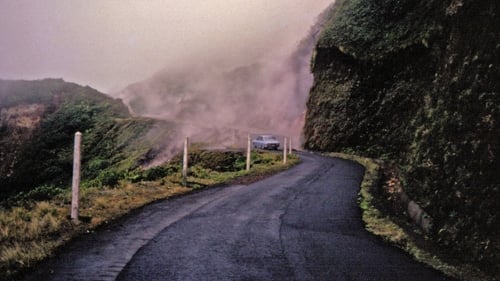
Editor
En 1976 los científicos predijeron que la isla de Guadalupe sería destruida por la erupción del volcán La Soufrière. En plena evacuación, tres hombres se echaron atrás y decidieron quedarse en la isla. Herzog filmó las últimas y fantasmales imágenes de la isla y recogió el testimonio de los hombres que decidieron esperar el fin rodeados por una jauría de perros olvidados. No se pudo rodar el final previsto porque la predicción resultó ser falsa.
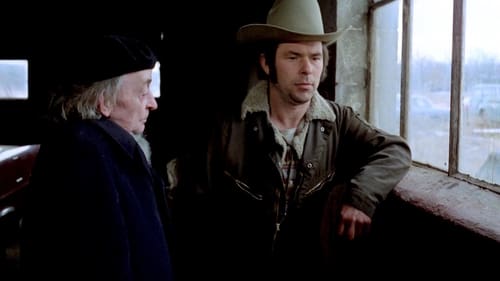
Editor
Cuando Bruno Stroszek sale de prisión, le advierten que debe dejar de beber. Con pocas habilidades y menos expectativas, sobrevive como músico callejero. Precisamente en la calle conoce a Eva, una prostituta, con la que entabla amistad. Después de ser golpeados por el chulo de ella, deciden unirse a Scheitz, un excéntrico vecino de Bruno, que ha decidido emigrar a Wisconsin, en los Estados Unidos.
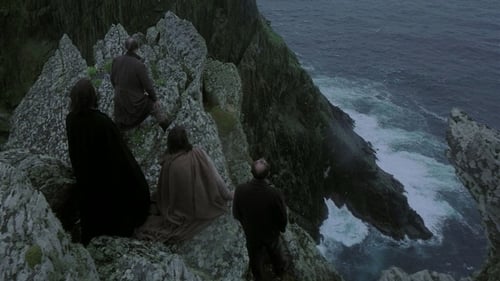
Editor
Un pequeño pueblo de Baviera es famoso por su "Cristal de rubí" con el que elaboran diversos objetos. Cuando el maestro artesano muere de repente, sin haber revelado el secreto del cristal a su aprendiz, la ciudad cae en una profunda depresión y el propietario de la fábrica de cristales se obsesiona con el secreto perdido.

Editor
A documentary short examining the language and performance of auctioneering, filmed at the World Livestock Auctioneer Championship in Pennsylvania.
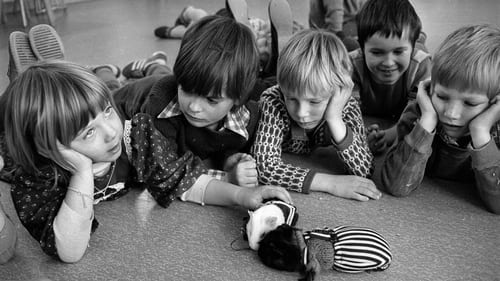
Editor
Documental sobre una clase de preescolar que pretende mostrar las relaciones entre los niños.

Editor
Combining fictional and documentary modes, Kluge's In Danger and Dire Distress... takes a critical stance toward Frankfurt's public sphere and urban redevelopment. Despite the serious formal and political concerns of the film, Kluge's heightened sense of the absurd safeguards a reserve of utopian optimism.

Editor
Alemania, principios del siglo XIX. Kaspar es un enigmático muchacho que ha pasado toda la vida encerrado y aislado en una cueva: no conoce, pues, el lenguaje ni tiene capacidad para relacionarse con los demás. Cuando, en 1828, alguien lo abandona en Nuremberg con una carta para las autoridades locales, se convierte primero en una especie de atracción de feria y después en una curiosidad científica y social.

Editor
En este breve documental Werner Herzog posa su mirada sobre un saltador de esquí cuya ocupación diaria es la carpintería. A través de las pruebas deportivas en las que compite, Herzog muestra su resistencia física y mental, así como sus momentos de derrota y gloria, de adrenalina y exaltación.

Editor
Short by Alexander Kluge.

Editor
En 1560, poco después de la destrucción del imperio inca, una expedición española parte de las montañas de Perú rumbo a las selvas del Amazonas, en busca de la legendaria tierra de El Dorado. A través del diario del fraile Diego Gaspar de Carvajal iremos conociendo detalles y circunstancias de aquella peligrosa aventura...

Editor
Documental que gira entorno a Fini Straubinger, una mujer madura que, siendo una niña, sufrió un accidente a resultas del cual perdió, primero la vista, y luego el oído.

Editor
Año 2034. El espacio exterior está dominado por compañías codiciosas. Dos astronautas, no muy inteligentes, malviven gracias a sus negocios sucios, el contrabando y el asalto de naves espaciales.
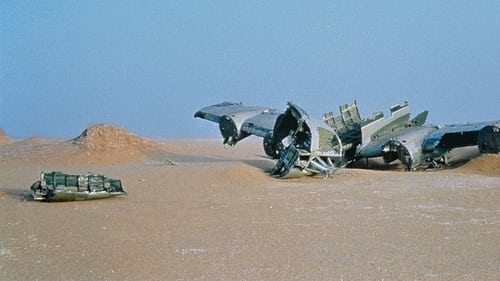
Editor
Estructurada en tres partes (Creación, Paraíso y La era dorada) y rodada en el desierto del Sahara, esta es sin duda la película menos convencional del director alemán. Sin argumento ni guión determinado, Herzog nos regala una serie de imágenes, palabras y música que funcionan conjuntamente dando un resultado singular. La sensación resultante viene reforzada por una banda sonora con temas de Leonard Cohen, Mozart o la Third Ear Band
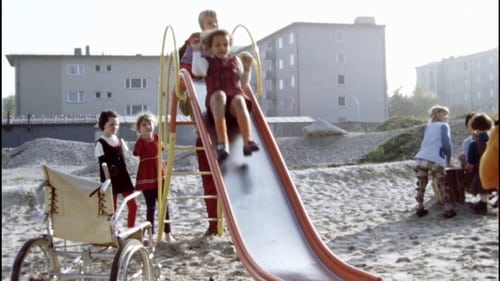
Editor
A documentary by Werner Herzog exploring the different treatment accorded to the disabled in Germany and the USA.
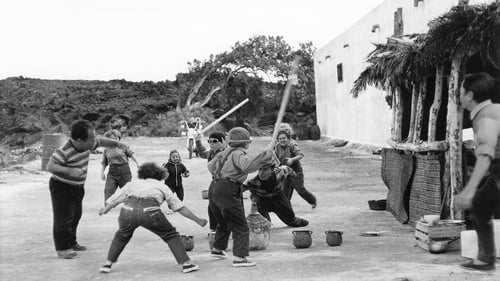
Editor
Un grupo de enanos encarcelados empiezan una rebelión caótica contra la autoridad. Destruyen todo a su alrededor intentando captar la atención del instructor al cargo, quien tiene algunos de ellos retenidos. El personaje central, Hombre, es la representación de los siete pecados mortales, mientras los enanos luchan entre ellos para conseguir territorio y comida. Cada vez son más crueles. Es una reflexión sobre la humanidad como especie.

Editor
The Flying Doctors of East Africa (German: Die Fliegenden Ärzte von Ostafrika) is a 1969 documentary film by Werner Herzog about the "flying doctors" service of the African Medical and Research Foundation in Tanzania, Kenya, and Nairobi.

Editor
The Indomitable Leni Peickert is a loose, half-hour sequel to Alexander Kluge's second feature film, Artists in the Big Top: Perplexed. This shorter work, seemingly assembled from leftover footage from the longer film, continues the story of the circus owner Leni Peickert after she first abandoned her idea of a radical circus in favor of a job in television. It opens where the previous film left off, at a TV station where Leni and her friends have gathered as employees, attempting to infiltrate the corporate establishment with their own revolutionary ideas. This radicalism is somewhat undercut by the way that Kluge deliberately shoots down the low-cut blouse of one of these young revolutionaries, the camera eyeing her cleavage and then panning down, to the text she's reading, and then back up again, finding her sexuality ultimately much more interesting than her radicalism.

Editor
The film features several horse trainers and other track workers talking about their roles at the track, always eventually interrupted by an older man who claims to be the true authority, and demands that they be thrown out. One recurring young man, the first to appear, claims that he protects the horses from enthusiastic racing fans. He does not appear to be employed by the track, but seems to provide his services voluntarily. His protection from "fanatics" gives the film its title. The film is shot in a documentary style, but the sheer implausibility of the dialogue leaves the exact nature of the film ambiguous.

Editor
Documentary film by Günther Hörmann.
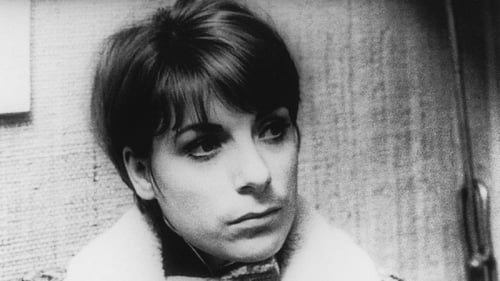
Editor
Leni Peickert hereda un circo con el que intenta hacer una forma de entretenimiento socialmente relevante, su circo "reformista". Se arruina dos veces, y Leni deberá decidir si su sueño de un nuevo estilo de circo es demasiado optimista.

Editor
Un paracaidista alemán herido de nombre Stroszek, es enviado a Kos, una tranquila ciudad de Creta, junto a su mujer Nora, una enfermera griega y otros dos soldados con heridas menores. Quedan recluidos en un polvorín de una vieja fortaleza y hay muy poco que hacer. Becker se dedica a traducir y transcribir inscripciones, Meinhart se divierte poniendo trampas para cucarachas y Nora ayuda a Stroszek a hacer fuegos artificiales usando la pólvora de las granadas que hay en el polvorín. Lentamente y debido al calor y al tedio, Stroszek comienza a volverse loco y querrá arrastrar a sus compañeros a una misión descabellada. Basada en un relato escrito por Ludwig Achim Von Arnim (1818).
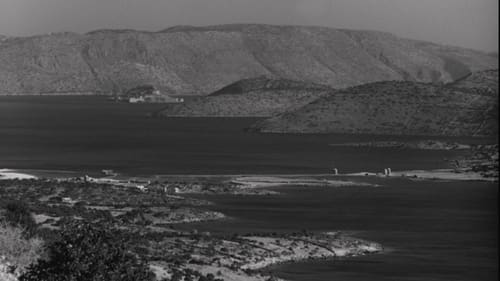
Editor
Early short by Werner Herzog shot while being on location in Greece shooting "Lebenszeichen".

Editor
Kluge’s short-film starring his sister/muse Alexandra.

Editor

Editor
Short by Edgar Reitz.
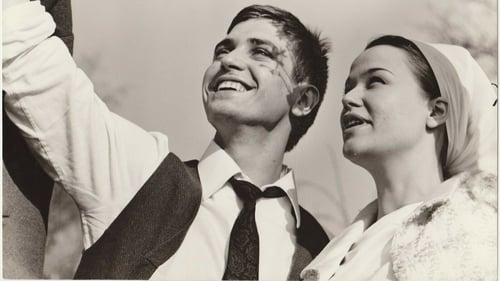
Editor
Elisabeth, estudiante de fotografía, conoce a Rolf, estudiante de medicina. Tras enamorarse y casarse, tienen numerosos hijos, pero ello no evita la infelicidad de Rolf, frustrado por un vacío que no consigue llenar...

Editor
Anita G. es una joven de 22 años, que se traslada desde Alemania Oriental a la Occidental en busca de mayores expectativas de vida. Sin embargo su lugar de pertenencia más el hecho de ser judía harán que su adaptación sea imposible. Comenzará entonces a realizar actos de rebeldía, en contra de esa nueva sociedad y de las instituciones que la reglamentan. (FILMAFFINITY)

Editor
Early Alexander Kluge short film that follows the career of a German policeman from World War I into the 1960s.

Editor
Documentary short by Edgar Reitz.

Editor
Early documentary by Edgar Reitz.


































